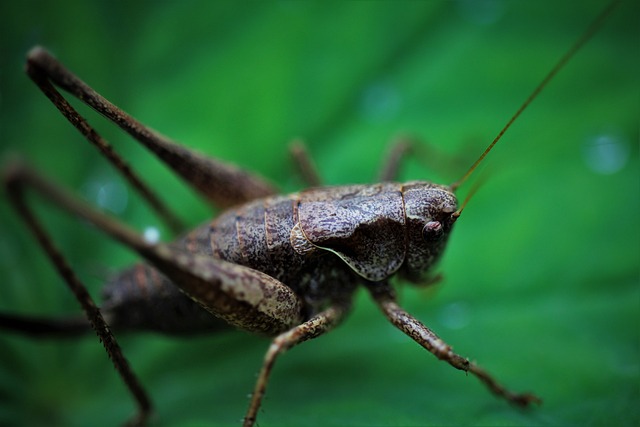Pest infestations pose significant risks, emphasizing the importance of proactive prevention. For rodents like mice and rats, sealing entry points, maintaining cleanliness, and regular home maintenance are key strategies. Implementing these non-toxic methods creates a safer, healthier living environment by effectively managing infestations without harmful chemicals. Focused on rodent control for homes, these measures ensure a comfortable and pest-free space.
“Keep your home pest-free with our comprehensive guide on proactive measures. Understanding common pest infestations, especially those involving rodents, is the first step towards a comfortable living environment. We explore effective rodent control strategies, from traditional methods to natural solutions. Learn essential home maintenance practices to prevent infestations and discover long-term protection techniques that promote a healthy, pest-free space. Implement these tips for robust rodent control in your home.”
Understanding Common Pest Infestations in Homes
Pests can quickly transform from a minor inconvenience to a serious problem in your home, leading to damage, health risks, and costly repairs. Understanding common pest infestations is the first step in proactive prevention. Rodents, such as rats and mice, are among the most persistent household invaders, seeking shelter during colder months. They can enter through tiny gaps, causing damage while searching for food and water. Termites, often referred to as silent destroyers, can lead to significant structural damage over time by feeding on wood and other plant materials. Infestations may also involve insects like ants, cockroaches, or spiders, which can quickly multiply and spread throughout your home’s crevices and corners.
Identifying potential entry points is key to rodent control for homes. Sealing gaps around pipes, windows, doors, and utility lines can deter rodents from finding their way inside. Regular cleaning and proper food storage are essential in preventing insect infestations, as they require little more than crumbs or spills to thrive. Understanding the behaviors and preferences of these pests allows homeowners to implement targeted prevention strategies, ensuring a safer, healthier living environment.
Implementing Effective Rodent Control Strategies
Rodent control for homes is a proactive measure that every homeowner should consider, as rodents can cause significant damage to structures and pose health risks. The first step in implementing effective rodent control strategies is to identify potential entry points into your home. This includes sealing gaps around pipes, cables, and doors with steel wool or caulk. Ensuring all windows are fitted with secure screens can also deter rodents from entering through openings in the upper levels of your home.
In addition to physical barriers, maintaining a clean environment is crucial for rodent control for homes. Regularly cleaning up food debris, storing groceries securely, and keeping garbage bins sealed can minimize attractants that draw rodents in. Implementing these preventive measures not only helps keep your home free from rodents but also promotes a healthier living space.
Essential Home Maintenance Practices for Prevention
Regular home maintenance is a proactive approach to prevent pest infestations, especially from rodents like mice and rats. Begin with a thorough inspection of your property, checking for any signs of damage or entry points, such as cracks in walls, gaps around pipes and wires, or broken screens. Seal these areas with appropriate materials to create a physical barrier against intruders. Regularly cleaning and sanitizing your home, especially kitchens and bathrooms, goes a long way in deterring pests. Food debris and stagnant water are attractants for rodents; ensure all food is stored securely, and remove any standing water immediately. Additionally, maintaining a clutter-free environment reduces hiding spots for pests, making it easier to spot potential problems early on.
Implementing good hygiene practices and proper waste management is crucial. Promptly clean up any spills or drops, and avoid leaving dirty dishes in the sink for extended periods. Ensure trash cans are secure and regularly emptied, as uneaten food attracts various pests. Keep your yard tidy by trimming bushes and trees to prevent excessive foliage that can provide shelter for rodents and other insects. Regular yard maintenance, including mowing grass and raking leaves, reduces moisture levels, making it less appealing for pest habitats.
Natural and Proactive Solutions for Long-Term Protection
By implementing a combination of proactive measures, natural solutions, and effective home maintenance practices, you can significantly reduce the risk of pest infestations. Specifically, focusing on rodent control strategies is crucial, as rodents can cause substantial damage to your property. Regular inspections, sealing entry points, and maintaining cleanliness are essential home maintenance practices that act as robust defenses against common pests. Additionally, embracing natural solutions like repellents and beneficial insects offers a safer, more eco-friendly approach to pest prevention. Ultimately, a proactive stance toward pest control not only protects your home’s integrity but also ensures a healthier living environment for you and your family.
